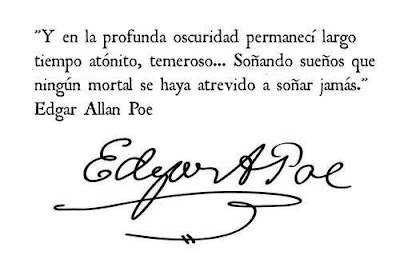A long and challenging academic year has come to an end. The Edgar Allan Poe Blog has surpassed any initial expectations receiving hundreds of visits from the United States, Belgium, Spain, and Greece, to name a few countries. I would like to thank you all for your support. This break is much needed; yet it does not signify the absence of hard work.
My upcoming research stay at the Penn State University will undoubtedly aid my research in the field of Poe studies and it will also allow me to delve into new aspects in this field which will be reflected on this blog. Wishing you all a relaxing summer.
My upcoming research stay at the Penn State University will undoubtedly aid my research in the field of Poe studies and it will also allow me to delve into new aspects in this field which will be reflected on this blog. Wishing you all a relaxing summer.
D.T.
































